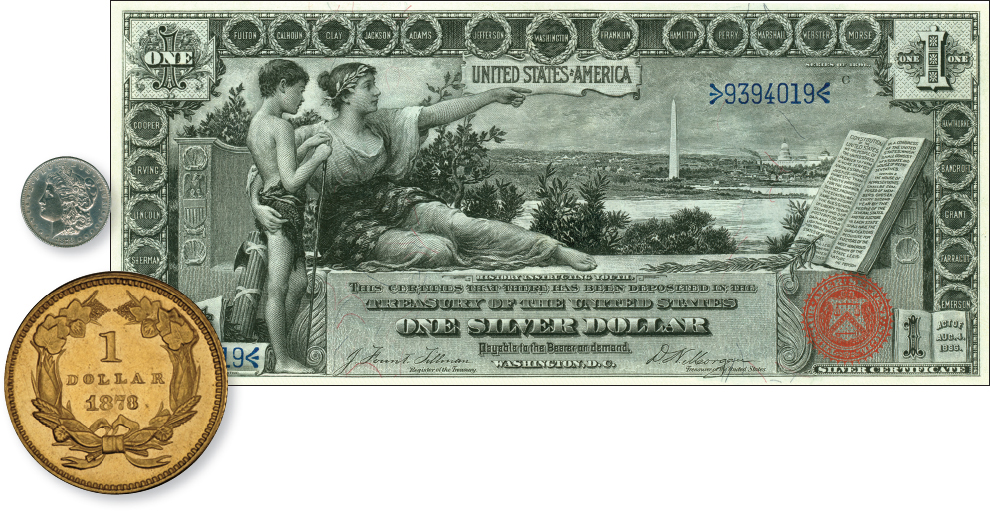What role did economic issues play in party realignment?
Printed Page 538

CHRONOLOGY
1873
- – Wall Street panic leads to major economic depression.
1887
- – Interstate Commerce Act.
1890
- – McKinley tariff.
- – Sherman Antitrust Act.
1893
- – Wall Street panic touches off national depression.
1895
- – J. P. Morgan bails out U.S. Treasury.
FOUR YEARS LATER, in the election of 1888, fickle voters turned Cleveland out, electing Republican Benjamin Harrison, the grandson of President William Henry Harrison. Then, in the only instance in American history when a president once defeated at the polls returned to office, the voters brought Cleveland back in the election of 1892. What factors account for such a surprising turnaround? The 1880s witnessed a remarkable political realignment as a set of economic concerns replaced appeals to Civil War sectional loyalties. The tariff, federal regulation of the railroads and trusts, and the campaign for free silver restructured American politics. Then a Wall Street panic in 1893 set off a major depression that further fed political unrest.